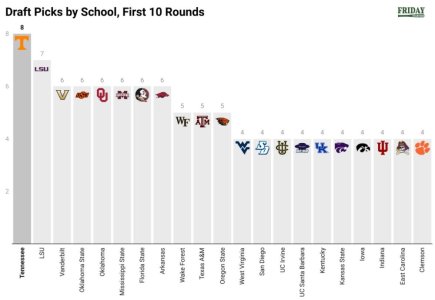So, yes and no. He loses the leverage by not having the option to return, but the increased production/visibility/competition will make him more marketable and attractive. The downside is that the team that drafted him can lowball him on his slot value by attempting to pay him well under slot. Then it becomes a standoff to see who budges; the team or the player. As
@cthvolsfan pointed out, the team loses that slot value from their signing pool if the player refuses to sign if drafted in the first 10 rounds, and also receives no draft pick compensation if drafted outside the top 2 rounds. So, rounds 3-10 are tricky for the team because they run risk of losing a valuable pick and the slot value from their salary pool for draft picks. That gives the player a little bit of leverage being drafted in those rounds because the loss for the team is threefold (lose the player, lose the pick, lose the draft slot dollar value). But the team also knows that the player has little leverage with no option to return to school, as well. Most often, they arrive at a compromise, but often it costs the players his first year in rookie ball or low-A while negotiations take place.






